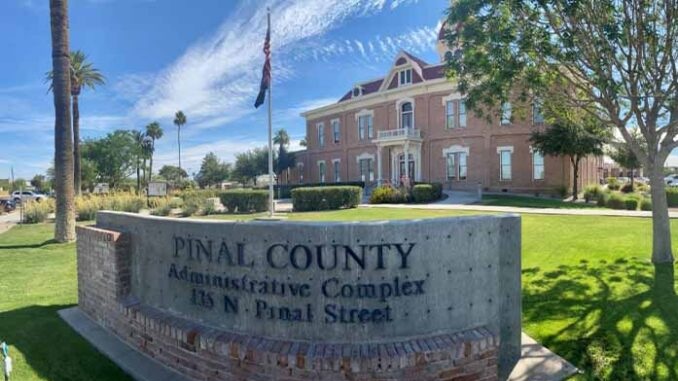
by Ethan Faverino | Feb 14, 2026 | Economy, Must Read, News
By Ethan Faverino |
The latest survey from the National Federation of Independent Business (NFIB) reveals that small business optimism in the U.S. dipped slightly at the start of 2026. The Small Business Optimism Index declined by just 0.2 points in January to 99.3, yet it remains above the 52-year average of 98.
Among the index’s 10 key components, 7 declined, while only 3 improved. The positive standout shift came in expectations for real sales volumes, which jumped by 6 points, with a net 16% of owners now anticipating stronger sales in the coming quarter.
However, uncertainty notably climbed, as the Uncertainty Index increased by 7 points to 91. Much of this rise stemmed from more owners expressing doubt about whether the current environment favors business expansion.
“While GDP is rising, small businesses are still waiting for noticeable economic growth,” stated NFIB Chief Economist Bill Dunkelberg. “Despite this, more owners are reporting better business health and anticipating higher sales.”
In Arizona and similar regions, a cautious mood persists, with many business owners hesitant to pursue expansion. NFIB Arizona State Director Chad Heinrich noted that ongoing tax-related uncertainties are adding to these concerns, while NFIB data shows taxes are the leading problem for 18% of business owners.
“The optimism index remains stable, but small business owners remain cautious about the future and whether it’s a good time to expand their operations,” explained Heinrich. “The limbo Main Street Arizonans find themselves in this tax season only exacerbates their uncertainty. Small business owners need tax conformity from policymakers now.”
A new addition to this month’s report, the Small Business Employment Index, registered 101.6 in January—down nearly a point from December but still 1.5 points above its historical average of 100 and marginally higher than the 2025 average. This suggests the labor market for small businesses remains relatively balanced.
According to the NFIB Monthly Jobs Report, overall business conditions showed improvement in owners’ self-assessments, with 14% now rating their operations as excellent (up 5 points) and fewer classifying them as only fair (down 7 points to 27%).
Investment activity picked up as 60% of owners reported capital expenditures over the past six months—the highest share since late 2023—mostly directed toward new equipment.
On the labor front, challenges eased somewhat, with businesses citing labor quality as their top issue; the share fell for the third straight month to 16%, and unfilled job openings dropped to 31% (still above the long-run norm).
Inflationary pressures linger, however, as 26% of owners reported raising prices in January, and 32% plan increases in the next few months.
Ethan Faverino is a reporter for AZ Free News. You can send him news tips using this link.

by Ethan Faverino | Feb 12, 2026 | News
By Ethan Faverino |
State Representative Teresa Martinez (R-LD16) recognized Pinal County Sheriff’s Office (PCSO) Deputies Gregory Sanders and Jacob Montoya on the floor of the Arizona House for their courageous actions in rescuing an 8-year-old boy from a suspected human trafficking and smuggling operation in January.
In a formal legislative proclamation read before members of the House, Rep. Martinez honored the deputies for their quick thinking, professionalism, and unwavering commitment during a multi-agency traffic stop that led to the child’s safe recovery and the arrest of a suspect.
“These deputies trusted their training, asked the right questions, and refused to ignore what didn’t add up,” stated Martinez. “Because of their professionalism and courage, a child was removed from danger and protected. This is the kind of work Pinal County deputies do every day to keep our communities safe.”
According to PCSO, the incident began on January 7, when a multi-agency task force, including officers from Cochise County and federal partners, conducted a traffic stop on a vehicle with Mexican license plates in Cochise County. The driver, a Mexican citizen, was transporting two young children: her biological daughter and an unrelated 8-year-old boy.
During a subsequent search of the vehicle for narcotics, federal partners flagged suspicions of child trafficking linked to cartel activity. The vehicle was temporarily seized, and the woman obtained a motel room in Eloy, Arizona. PCSO deputies were called to make contact.
Upon questioning, deputies observed inconsistencies in the woman’s story. The boy appeared coached in his responses and was unable to correctly identify the woman as his guardian. Deputies separated the child from the suspect, confirmed that he was unharmed, and learned the woman had provided a false name for the boy.
She ultimately admitted to being paid $500 to transport the 8-year-old across the border for unknown individuals, with no knowledge of his family or destination.
Body camera footage released by the Pinal County Sheriff’s Office captured the interaction, including the moment the suspect confessed to the payment and the boy’s visible relief and comfort once separated from her, allowing him to speak freely without coercion.
Cochise County deputies assisted in Eloy, and federal agents took custody of the boy to facilitate family reunification efforts. The suspect was placed in federal custody, facing potential charges, while the investigation continues to determine the full intentions of the traffickers.
Following the proclamation, Rep. Martinez praised the Pinal County Sheriff’s Office and all involved agencies for their collaborative efforts in combating human trafficking and protecting vulnerable children.
Ethan Faverino is a reporter for AZ Free News. You can send him news tips using this link.

by Ethan Faverino | Feb 8, 2026 | Economy, News
By Ethan Faverino |
Arizona House Republicans on the Natural Resources, Energy, and Water Committee have taken action to address skyrocketing gas prices and utility bills, passing a sweeping package of bills designed to lower fuel costs, enhance energy reliability, and defend ratepayers.
Under the leadership of Chairman Gail Griffin (R-LD19), the measures align with the House Republican Majority Plan’s core priorities of unleashing economic prosperity, promoting government efficiency, and protecting individual rights and liberties.
The legislation, which advanced on a party-line vote with Democrats in opposition, targets the challenges faced by Arizona families, particularly in Maricopa and Pinal Counties, where severe summer fuel blend requirements have driven up prices at the pump. By prioritizing affordability and reliable power, these bills aim to ease the financial burden on households amid rising energy demand.
“The cost of living for Arizona families, including gas and electricity, continues to increase, and Republicans are acting,” stated Chairman Griffin. “This package puts affordability first by lowering fuel costs, protecting ratepayers from higher utility bills, and making sure Arizona has dependable power as demand grows. The Majority Plan is clear: government should work to ease the cost burden on families, not make them worse.”
Bills Tackling High Gas Prices
- HB 2145 (Rep. Griffin): Amends motor fuel statutes to empower the President of the Senate and Speaker of the House to jointly request EPA fuel waivers during shortages if the Governor does not act, providing a defense against price surges.
- HB 2400 (Reps. Willoughby, R-LD13, and Biasiucci, R-LD30): Implements a seasonal suspension of the state’s 18-cent gas tax from May through September in Maricopa and Pinal Counties. The bill ensures local governments are reimbursed for lost highway revenue through allocations from the Arizona Highway User Revenue Fund, including $27.588 million to counties, $39.93 million to cities and towns, and $5.082 million to larger municipalities. It also includes an emergency clause for immediate implementation and exempts the Department of Transportation from rulemaking for one year.
- HB 2696 (Rep. Willoughby): Directs the Arizona Commerce Authority to prioritize reducing fuel and gas prices as its primary objective for two years, expiring December 31, 2029. The authority must collaborate with the oil and gas industry to study repealing the cleaner-burning gasoline blend, building new pipelines, establishing a strategic reserve, and exploring in-state refineries, including reviving a proposed facility in Yuma County. Status updates will be provided to legislative committees, with a final report due by October 1, 2026.
- HB 2955 (Rep. Willoughby): Amends motor fuel standards to end the expensive summer fuel blend in populous counties, subject to EPA waiver under the Clean Air Act. It allows for gasoline compliant with ASTM D4814 and vapor pressure limits, addressing supply shortages and enabling lower-cost alternatives.
- HCM 2008 (Rep. Willoughby): A concurrent memorial urging Congress and the EPA to eliminate the federal gas tax on Arizona’s cleaner-burning gasoline in Maricopa and Pinal Counties from May to September or grant the EPA administrator emergency waiver authority for costlier blends. This recognizes Arizona’s progress toward National Ambient Air Quality Standards while highlighting the undue tax burden on specialized fuels.
Supporting these efforts are additional bills to promote long-term solutions:
- HB 2014 (Rep. Fink, R-LD27): Requires the Department of Environmental Quality (ADEQ) and Arizona Department of Agriculture to conduct air emissions modeling and feasibility studies on alternative gasoline blends, including federal reformulated, California phase 3, and conventional options. Reports must be published by September 30, 2027, with $100,000 appropriations each for modeling and studies.
- HB 2401 (Willoughby and Biasiucci): Mandates biennial reviews by ADEQ of fuel formulations available under federal standards, assessing air quality impacts in regulated areas, and submitting recommendations to the Department of Agriculture, the Governor, the President of the Senate, the Speaker of the House, and the Secretary of State by December 31 of each review year.
- HB 2428 (Griffin): Authorizes voluntary mobile emissions reduction credit programs, permitting emissions credits for nonroad engines under Clean Air Act guidelines, with permits issued by ADEQ for up to 20 years, supported by chambers of commerce, utilities, and Maricopa County.
“Today we heard from organizations with the time and resources to lobby against affordable prices for Arizona families, but not from the families paying more at the pump,” explained Majority Whip Julie Willoughby. “Working families cannot take time off to come to the Capitol and ask for relief; that is why we are here to help be their voices.”
“Eighteen cents a gallon may sound small to some, but it matters to families trying to make ends meet,” Willoughby added. “I will do everything in my power to deliver relief now while we continue working to fix the fuel blend and supply problems. Families need lower prices, not excuses.”
Bills Ensuring Energy Reliability and Ratepayer Protections
- HB 2331 (Reps. Marshall, R-LD7 and Heap, R-LD10): Renames and expands energy reliability statutes to require public power entities and service corporations to prioritize domestically produced fuels, minimize foreign reliance, and evaluate resources for affordability, reliability, and cleanliness. Defines “clean energy” to include low-emission sources like nuclear and natural gas, with reliable sources needing at least 50% capacity factor and rapid ramp-up capabilities. The bill emphasizes hydrocarbons and finds domestic sourcing essential for public health and safety.
- HB 2756 (Reps. Griffin and Blackman, R-LD7): Adds provisions for public power entities and electric corporations to report quarterly on new extra-high load factor customers, including interconnection requests and completions. These customers must be factored into load growth projections. The Arizona Corporation Commission (ACC) is directed to adopt rules on contracts, minimum billing, and pre-execution reviews to protect other ratepayers, excluding member-owned cooperatives. Requires cost-of-service studies within 180 days and an ACC workshop within 90 days to assess impacts on residential bills and potential new customer classes.
These bills now advance for further legislative consideration.
Ethan Faverino is a reporter for AZ Free News. You can send him news tips using this link.

by Ethan Faverino | Feb 7, 2026 | News
By Ethan Faverino |
On Friday, Arizona Governor Katie Hobbs signed a Republican bill passed on a bipartisan vote by the Arizona Legislature to change the date of the 2026 primary and permanently move Arizona primaries to the second to last Tuesday in July.
The legislation permanently shifts the primary election date earlier, ensures timely ballot access for military voters overseas, and mandates clearer guidelines for political party observers at polling sites, marking a significant step toward greater election integrity and consistency ahead of the 2026 election cycle.
HB 2022 addresses longstanding issues with Arizona’s election calendar by moving the primary from August 4 to the second-to-last Tuesday in July – specifically July 21 for 2026.
This two-week adjustment resolves conflicts with federal requirements under the Uniformed and Overseas Citizens Absentee Voting Act (UOCAVA), which mandates that ballots be sent to military and overseas voters at least 45 days before an election. Previously, Arizona’s timeline risked delays, potentially disenfranchising service members.
By advancing the date, the bill ensures that ballots are mailed on time, giving voters abroad ample time to receive, complete, and return them.
The measure also enhances transparency and oversight by explicitly requiring authorized political party observers to be permitted at all voting locations, including early voting centers and emergency voting sites.
The bill was sponosored by Rep. Alexander Kolodin (R-LD3) with a mirrored bill (SB 1425) sponsored in the Arizona Senate by Sen. Wendy Rogers (R-LD7).
“Arizona law has always intended to protect the integrity of our elections, including for military voters and at ALL voting locations,” said Rep. Kolodin. “I am delighted that Governor Hobbs agreed with me that this commonsense reform and legislation is necessary.”
“This was a unified Republican effort leading the way from start to finish,” Senator Rogers added. “By working together across chambers, we delivered a commonsense election bill that protects military voters, brings clarity to our election calendar, and strengthens transparency for Arizona voters. This is how the process should work.”
New voter deadlines are as follows:
- Voter Registration Deadline: June 22, 2026
- Ballots are mailed to voters on the Active Early Voter List and In-Person Early Voting Begins: June 24, 2026
- Primary Election Day: July 21, 2026
The Primary date change also impacts filing deadlines for candidates running for office.
Filing Dates:
- Partisan Primary Candidate Filing: Feb. 21, 2026 – March 23, 2026
- Precinct Committeemen Write-In Deadline: April 6, 2026
- Write-In Candidate Filing Deadline: May 22, 2026
The measure had the full support of the Arizona Freedom Caucus (AFC). In a statement, AFC Chairman Senator Jake Hoffman (R-LD15) said, “Governor Hobbs signing Representative Kolodin’s HB 2022 is a huge win for election integirty in Arizona. While Adrian Fontes is making radical and unserious legislative proposals, like expanding unaccountable, sprawling voting centers and reinstating a permanent early voter list, Representative Kolodin is leading with bipartisan supermajorities.”
Ethan Faverino is a reporter for AZ Free News. You can send him news tips using this link.

by Ethan Faverino | Feb 6, 2026 | News
By Ethan Faverino |
State Representative Michael Way (R-LD15) has introduced House Concurrent Resolution 2048 (HCR 2048), a proposed constitutional amendment that would hold Arizona’s elected officials financially accountable for failing to pass a state budget on time.
If approved by the Arizona Legislature and subsequently by voters in the next general election, HCR 2048 would amend Article V, Section 12 of the Arizona Constitution.
The measure would require that the Governor, all statewide executive officers—including the Secretary of State, Attorney General, State Treasurer, Superintendent of Public Instruction, and Lieutenant Governor—as well as all members of the Legislature, forgo their regular salaries and subsistence payments whenever the general appropriation bill for the upcoming fiscal year has not been signed into law by April 30.
Compensation withheld under this provision would not be paid retroactively once a budget is finally enacted; instead, salaries and payments would resume only on a forward basis, beginning with the first full pay period after the budget becomes law.
“Taxpayers do not get paid for work they do not finish, and lawmakers should not be treated any differently,” expressed Rep. Way. “We are elected to do one essential job each year, pass a state budget. If we fail to meet that deadline, we should not collect a paycheck.”
Rep. Way noted that Arizona has long experienced recurring delays in budget passage, with deadlines frequently treated more as flexible guidelines than firm requirements. “For too long, budget deadlines have been treated as suggestions instead of requirements,” Rep. Way added. “HCR 2048 changes the incentive structure and makes elected officials accountable for doing the job they were sent here to do.”
The resolution operates alongside HCR 2005, which would require the Legislature to adjourn its regular session by April 30 of each year. Together, the two measures aim to shorten the prolonged legislative sessions and bring greater discipline to the annual budget process.
Ethan Faverino is a reporter for AZ Free News. You can send him news tips using this link.
Page 1 of 2912345678910...20...»Last »





